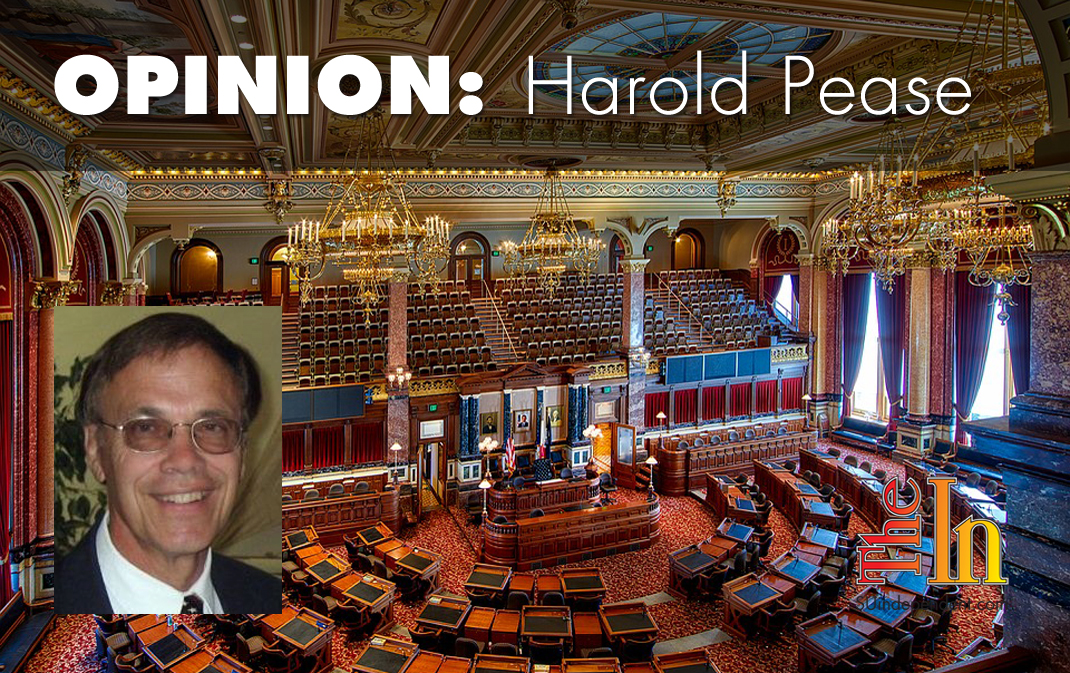
Iowa latest state to reject Article V Convention of States
Iowa is the 15th state to reject the proposed Article V Convention of States thus far this year. Going off the established process of constitutional change is too radical for most. They remain comfortable with both houses of Congress proposing one amendment at a time followed by its ratification by three fourths of the states.
But Article V does allow for a second method should Congress refuse to make needed changes: “On the Application of the Legislatures of two thirds of the several States, [Congress] shall call a Convention for proposing Amendments.” This is thought to be necessary primarily because Congress will not authorize an amendment to force itself to balance its budget, and failure to do so allows destructive unrestricted spending by both political parties. Congress has not proposed a constitutional change since the 27th Amendment in May 1992.
But instead of states using Article V to force an amendment to balance the budget, activists from both the right and the left say, in effect, that we have a number of other issues that also need amendment power. But this creates the problem of multiple amendments to consider simultaneously without sufficient vetting of each.
Constitutionalists say to continue to propose just one change at a time so that each gets a full review and so that we do not open the floodgates of unintended consequences for what we do not want. The 14th Amendment is criticized today because it allowed multiple issues in one amendment, which opened the door to the most vague interpretations and thus law never intended by its founders. Constitutionalists welcome a balanced budget amendment by itself, but that is not now what Conventionalists are proposing.
Once the Convention of States is formed and amendments to the Constitution are proposed, these changes are ratified by state power alone. The federal government may propose, but it is excluded from the process of enlarging or reducing its power. Ratification requires three-fourths of either state legislatures or state conventions (a process that opens participation to the public) “as the one or the other Mode of Ratification may be proposed by the Congress.” Congress selects the mode presumably common for all states.
But a convention-of-states method was only tried at the Constitutional Convention in 1787. To make it open ended is risky. Whatever happens creates legal precedent for the future, and therein lies the danger. Many see the convention process as returning to what the Founding Fathers did when they were commissioned to repair the Constitution as it then existed. Once together, they chose to instead dump The Articles of Confederation and create a different Constitution, which they had not been commissioned to do. Congress, after receiving their report, simply forwarded it to the states and in that act legitimized it.
Success was made possible by common knowledge that the existing Constitution was not repairable, the Federalist Papers explaining the new Constitution’s natural law and human nature base, and the belief that God was assisting. Today I cannot name 55 (the number of men who signed the Constitution) people in all of government, federal or state, whom I would trust to design a better Constitution than what now exists.
Convention enthusiasts, mostly Republicans, believe that they can hold at bay the proposals of opposing parties or that Congress can somehow control the proposals and their specificity, but Congress has nothing more to say, once gathered, than it did in 1787. Even if Congress had such power, enthusiasts have too much faith in Congress doing the right thing. The call for a Convention of States is based upon their long history of not following the Constitution as written. Were Congress to return to the enumerated powers of Article I, Section 8, there would exist no need for another Convention of States.
Enthusiasts also have too much faith in states’ management power over convention delegates before and during the proposal convention or delegate-removal power, should a delegate go rogue. But what if they all go rogue as they did in 1787? The states also have a long history of not following the Constitution as written. The Constitution itemizes the powers of Congress as noted above. All unlisted powers remain with the states as per Amendment 10 of the Bill of Rights, which reads: “The powers not delegated to the United States by the Constitution, nor prohibited by it to the States, are reserved to the States respectively, or to the people.” Were the states to uphold this one amendment, they could force the federal government to uphold the Constitution, ending the need for another Convention of States.
Somehow, Convention of States enthusiasts believe that if they get delegates and office holders pledged by oath to uphold new amendments, the changes will follow. But all federal, state, county, and city officials are already so pledged, and such is ignored. Article IV, Section II reads: “The Senators and Representatives before mentioned, and the Members of the several State Legislatures, and all executive and judicial Officers, both of the United States and of the several States, shall be bound by Oath or Affirmation, to support this Constitution.” If these already violate their oaths on a regular basis, what evidence exists that they will not violate the new oath? The call for a new Convention of States is based upon the fact that they dishonored their oath to uphold the Constitution.
No wonder Iowa and 14 sister states rejected this dangerous and unpredictable method of constitutional change.
Articles related to “Iowa latest state to reject Article V Convention of States”
Heartbeat legislation, extermination centers, and the Constitution
The viewpoints expressed above are those of the author and do not necessarily reflect those of The Independent.
How to submit an article, guest opinion piece, or letter to the editor to The Independent
Do you have something to say? Want your voice to be heard by thousands of readers? Send The Independent your letter to the editor or guest opinion piece. All submissions will be considered for publication by our editorial staff. If your letter or editorial is accepted, it will run on suindependent.com, and we’ll promote it through all of our social media channels. We may even decide to include it in our monthly print edition. Just follow our simple submission guidelines and make your voice heard:
—Submissions should be between 300 and 1,500 words.
—Submissions must be sent to editor@infowest.com as a .doc, .docx, .txt, or .rtf file.
—The subject line of the email containing your submission should read “Letter to the editor.”
—Attach your name to both the email and the document file (we don’t run anonymous letters).
—If you have a photo or image you’d like us to use and it’s in .jpg format, at least 1200 X 754 pixels large, and your intellectual property (you own the copyright), feel free to attach it as well, though we reserve the right to choose a different image.
—If you are on Twitter and would like a shout-out when your piece or letter is published, include that in your correspondence and we’ll give you a mention at the time of publication.




An Article V Proposal Convention may be limited to a single topic. Why else must there be similar language in the 34 state applications necessary to trigger the convention? And the states have the power to set the rules for their commissioners compelling them to adhere to a directive from which they shall not stray.
The language empowering the states and the Congress is exactly the same, therefore it is curious that Dr. Please believes these are differently empowered, Congress to propose and debate amendments one by one and the states to…apparently do whatever they like. Perhaps the concept of “checks and balances” is unfamiliar to Dr. Please. The Constitution checks the amendment method through the ratification threshold, but without an alternate body equally empowered to propose amendments that are deemed necessary by those outside of the national Congress, the amendment provision is unbalanced. Only Congress can change the Constitution, putting it above the Judicial and Executive branches, as well as the states and even the people. “Constitutionalists” (which Please distinguishes from “Conventionalists” in a clever propaganda to indicate anyone in favor of the convention is against the Constitution) apparently ignore that the Federalist papers (which Please claims bolstered the Constitution’s success) actually praised the convention method of amendment. In Federalist 43 (Madison), Article V “equally enables the general and the State governments to originate the amendment of errors, as they may be pointed out by the experience on one side, or on the other.” That the states would have different interests than the federal government was clear to the founders, but not to Please, who claims to have studied them for thirty years. To have missed that detail is bewildering.
Moreover, the claim that the “only time” a convention of states has been tried was in the 1787 Convention when the Constitution was drafted is ridiculous. Yes, it was a convention where the interests of individual states were represented. However, it was called while the states were under the Articles of Confederation, as the Constitution did not exist. The Articles did not contain a provision for a convention, and 1787 was called outside of their authority with the broad mandate, to make “revisions.” Anyone who has ever written anything will know that sometimes “revising” means starting over. However, even if we entertain the popular fallacy that the states went “beyond their mandate,” they were required to submit it to Congress and the states for ratification. Since that was successfully done, and the convention being debated is to “propose amendments” and submit them to Congress (which has the power to decide whether the amendment fit the mandate according to the “Necessary and Proper Clause,” Article I, Section 8, Clause 18) and then the states for ratification, what Dr. Please has done is prove conventions work for the purpose they are called. After all, if any convention that sends delegates from the states is a threat to the Constitution, then we have threatened the Constitution every four years since the Constitution was ratified. The Electoral College is a convention of states called for a purpose, and whatever your view of it, it does what it is supposed to do. If Dr. Please has any faith in the Constitution he has “studied for 30 years,” he would know that this convention will do what it is supposed to do.